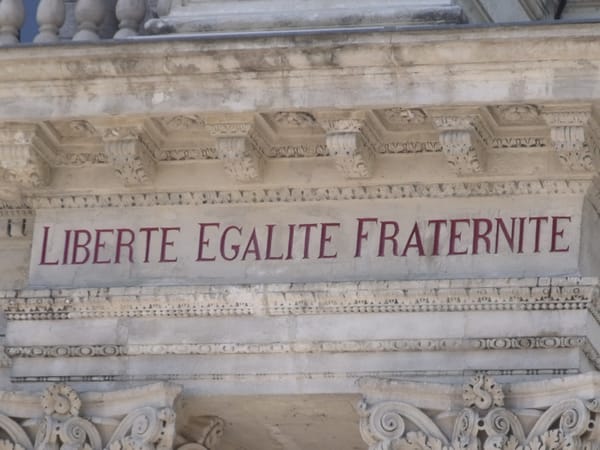To My Neoliberal Friends: Be More Humanist and Less Technocratic

Two years ago, a group of friends and I were discussing New York City Mayor Bill de Blasio’s plan to “intensify” the crackdown on black-market cigarettes after having enacted a tax hike on them. Since NYPD officers ostensibly looking for black-market cigarettes had killed Eric Garner a mere three years earlier, some in the group expressed disgust at the news. One friend, however, was quite sanguine. “Probably still a net social benefit,” is how he put it, meaning that even if the tax hike required stricter enforcement, it would be worth doing. He said that people have imperfect self-control, and the added onus of such a tax has been demonstrated to push a significant number of people struggling to quit to finally make the leap. Unjust treatment of black-market traders such as Eric Garner is rare even under stricter enforcement, he argued, and therefore the cigarette tax is worth it in net years of life saved.
That friend of mine is someone that can fairly be called “neoliberal.” Neoliberalism has a great deal to recommend it. It embraces intelligent approaches to commerce, trade, freedom of movement, public health, and safety nets. It is unfairly blamed for all the ills in the world and unfairly denied much credit for the tremendous global gains in the last half-century. I enjoy the memes and other content produced by the good folks at The Neoliberal Project. I am comfortable joining them in coalition, and I am by and large happy to see their influence spread. Some of my best friends are neoliberals, as they say. But!
A point I wanted to make to my friend that day is that a cost-benefit apparatus that uncritically lumps together dissimilar consequences, across very different persons and populations, is not good enough to be the basis of every social decision. In the example at hand: Supporting cigarette tax hikes with heightened enforcement puts one group at greater risk of violence in order to try and nudge members of a different group to take better care of themselves. And the people who were put at risk are not a randomly selected subset of the population; they are the ones already the most vulnerable. The formulas that neoliberals tend to apply tend to neglect such considerations.
Neoliberalism, both historically and for those who explicitly carry its label today, is a technocratic current within liberalism. Underappreciated and undernourished among those at the levers of power and in the policy circles that have their ear is what we might call a more humanist approach. To simplify, the one gives epistemic supremacy to technique and method, where the other subsumes these to scholarship and deliberation.
This is no hard and fast distinction. Only a fool dismisses statistics or technical arguments out of hand. But where the technocrat sees statistical evidence as holding a privileged position relative to evidence of other types, the humanist sees it as a form of principled argument; important, but one toolkit among many others in a broader rhetorical field. Where neoliberals favor the technical wizardry of a Why Nations Fail, humanist liberals prefer the patient scholarship of a The Color of the Law.
It’s not that humanists are attuned to unmeasurables, so much as that technocrats have a need to rule certain measurables out of bounds in order to tie down their analytics, to make their models ‘tractable’ and converge on a point estimate. It is far easier within a discursive analysis to rule important factors in; the analyst can name and discuss such factors even if, say, tolerably precise measurements of them happen to be unavailable, or if there is no consensus method of valuing, weighting, or discounting them. Keeping such factors on the same analytic plane as other factors makes it less likely that important matters end up forgotten, ignored, or otherwise elided.
By comparison, there are real risks to the technocratic approach, where whatever does not appear in the final equation is likely to be deemed of zero importance, and the possibility of error itself is presumed to be measured with some precision. The Eric Garner example is meant to put a face on this, but it goes beyond the failure of cost-benefit analyses to account for the risk of police brutality. Consider the following from an Exponents article on foreign policy:
[A] neoliberal foreign policy would be largely technocratic and results-driven. It would put faith in experts to develop policies well-supported by evidence that work towards promoting global welfare, defending liberal values, and protecting individual rights from violation. If this calls for sanctions, savvy diplomacy, or military intervention, it does not matter: it will be down to the experts to decide.
There is a cottage industry of foreign policy “experts” which has been a central part of decision-making in Washington from the early days of the Cold War. They are already technocratic and already consider themselves “results-driven” and “well-supported by evidence.” I do not think that the author of this piece is a fan of the resulting policy, any more than our own Jerrod Laber, who recently described its many shortcomings.
Humanists, no less than technocrats, want well-founded foreign policy. But a hint of the technocratic predilection for “hard” evidence is there in the declaration that the means don’t matter. Military intervention will be assigned a cost-benefit score, as will savvy diplomacy, and may the highest score win! The means themselves will be shoehorned into the calculation. Anything short of that fails to be “results-driven” or evidence-based.
So to my neoliberal friends, I make not an accusation, but a caution: beware the temptations of the technocratic mindset. It is often pursued with the best of intentions but too often devolves into the “sleight of hand that focuses attention on technical solutions” while missing the “violations of the rights of real people” and other moral tragedies, as William Easterly put it succinctly. Vices of that nature led to the greatest tragedies of the last century; we all owe it to one another to seek a different path in this one.
Featured image is taken from Wikimedia Commons




